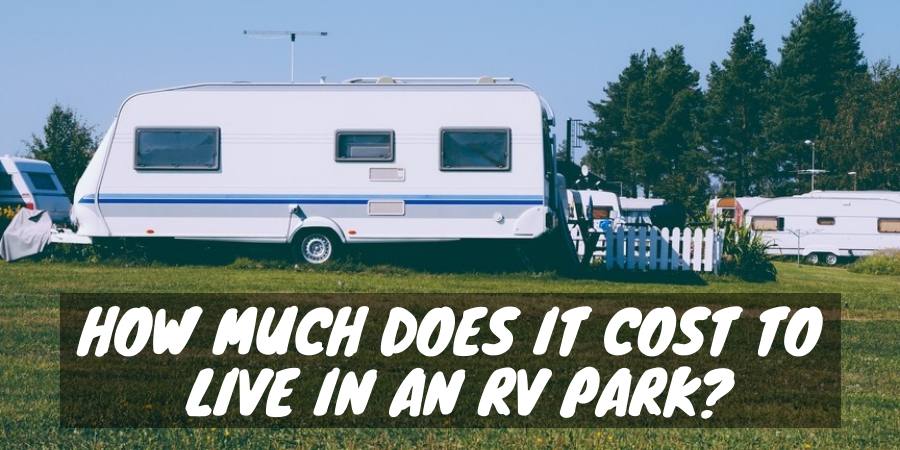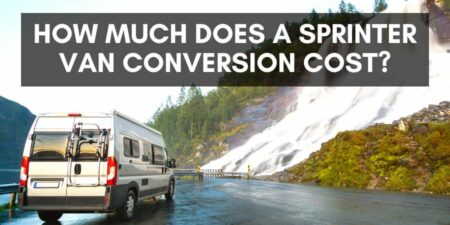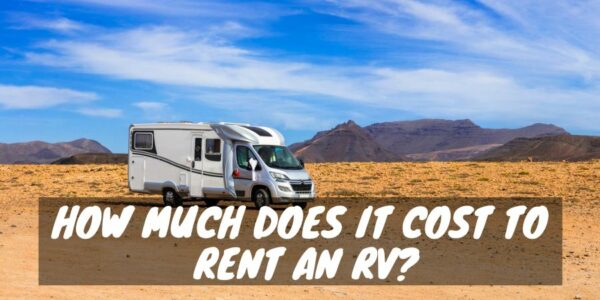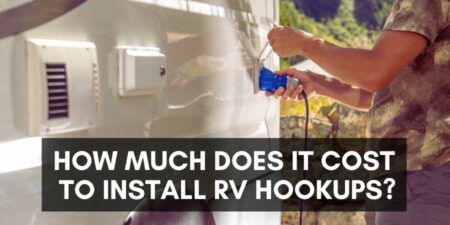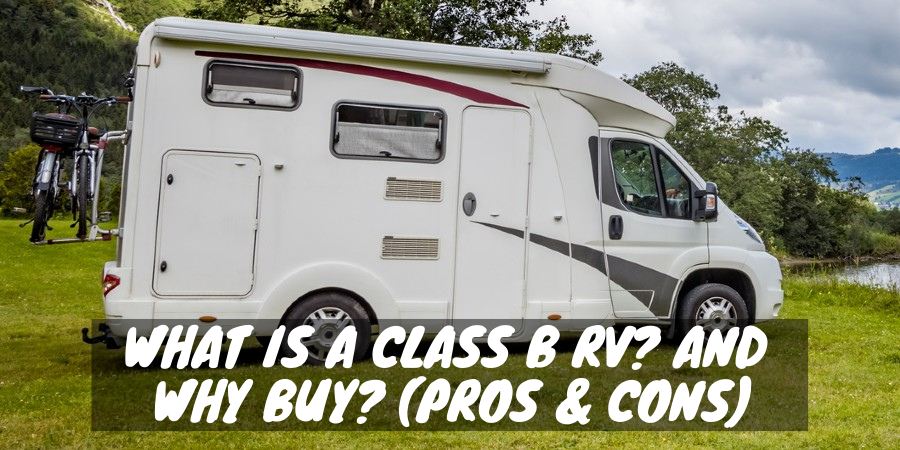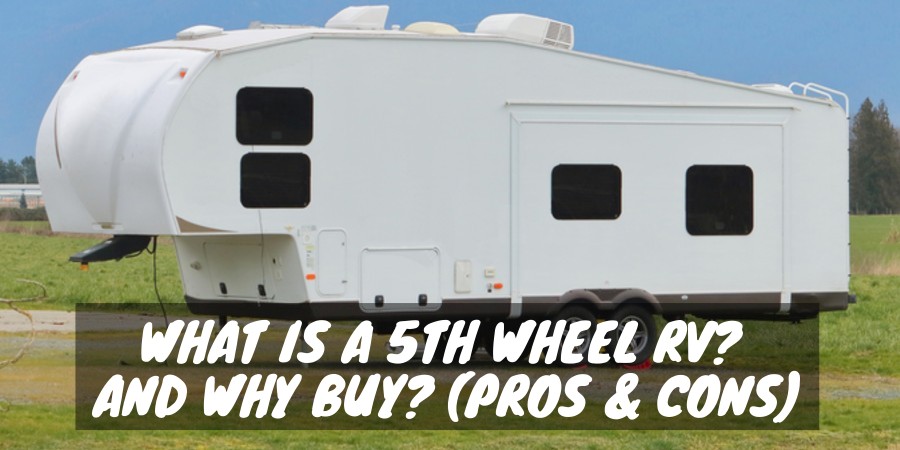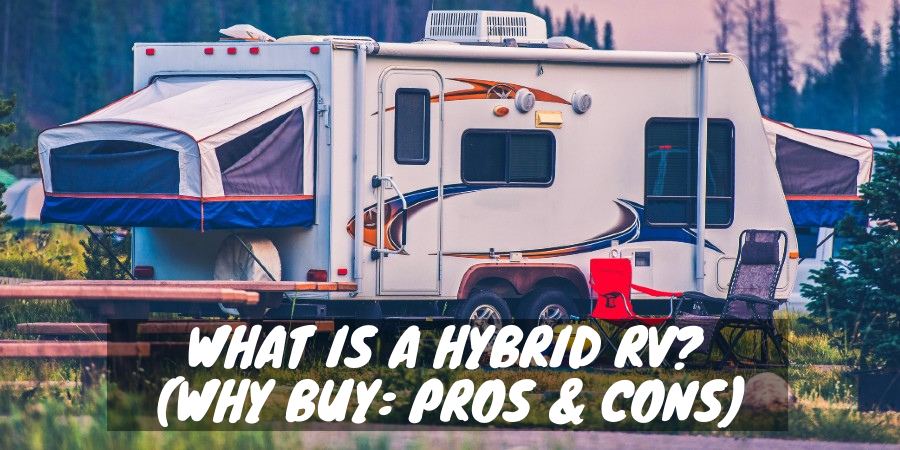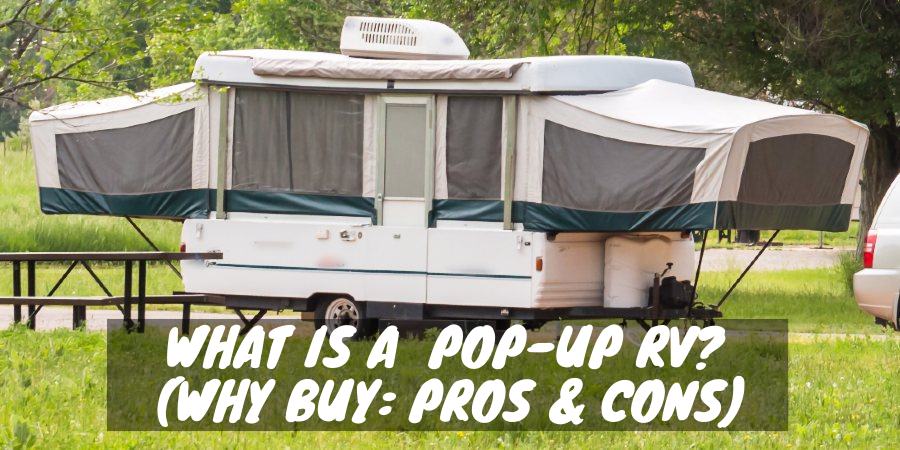Are you curious about the expenses involved in residing at an RV park on a full-time basis?
For campgrounds that allow long-term stays, you can find monthly rates from $300 up to well over $1,000. Just like standard housing prices, the RV park’s location and amenities will affect the overall cost.
Breaking down a total monthly or yearly cost can help RV owners who are thinking of taking an extended vacation, becoming a full-time RV nomad, or looking for a way to reduce monthly housing costs.
I’m here to give you all the details about:
- The actual cost of living in an RV park
- Which RV parks allow full-time residents
- What campgrounds expect from resident RVers
- How to become a workamper to reduce monthly costs
Once you read through all the great information below, you’ll have a better understanding of the true cost of full-time RV park living on your budget and your lifestyle and whether it’s right for you!
What Is the Average Monthly Cost of Living in an RV?

Does living in an RV save money? Well, the answer depends on your current lifestyle and living arrangements.
I did some research and find the monthly average expenses for a couple living in an RV park include:
| Campsite rental | $600 |
| Electric, water, cable, Wi-Fi, propane | $120 |
| Insurance (RV, car, health) – $250 | $250 |
| Groceries | $450 |
| Car (fuel and maintenance) | $0-$200 |
| Phone | $150 |
| Entertainment | $250 |
The average total comes out to around $2020 monthly, depending upon whether or not you also have a truck or car along with your recreational vehicle and how much propane you use.
Other statistics show the average monthly expense for a full-time RVing couple is $2275.
Do these numbers seem high to you?
Many people assume RV living is cheap, but it’s often the same as home or apartment living (with a lot less space.)
Of course, you can budget wisely, find an affordable campsite, and combine it with workamping (which I discuss below) to reduce your expenses to well under $1000 a month.
You can also live in a luxury RV park with fancy amenities and pay $2000-$3000 monthly for the campsite alone.
There’s no set “cost” to live in an RV park, but expect to need a minimum of around $25,000 a year to live in an average campground with a modest lifestyle.
Which RV Parks Allow Full-Time Residents and How to Find Them
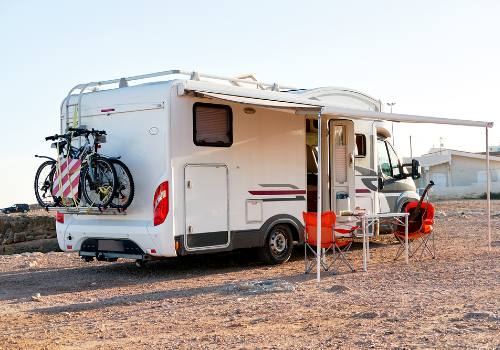
This article is about living in a regular RV park with most campsites full of rotating campground guests.
There are plenty of trailer parks that offer full-time RV parking, which isn’t the topic of discussion here.
Not all RV campgrounds allow guests to live there year-round. Finding RV parks that allow permanent residents is becoming more difficult for two reasons.
The first is that with the rise of RVing popularity, the number of campsites open for lengthy stays is dwindling.
The other reason is that RV park management finds long-term residents are more trouble than it’s worth.
Can you live in an RV park full time legally?
Yes, it’s perfectly legal to live in a campground and have an official mailing address, but owners are leaning away from this practice.
Why? Once a guest stays over 30 days, it becomes a trip to court for eviction proceedings if things go wrong, and one bad resident can quickly ruin the reputation of even the nicest RV campground.
Financially, RV parks can make the same amount or even more by renting a campsite on weekends and holidays over the low monthly rental rate given to long-term guests.
How to Find RV Parks That Offer Long-Term Rental
The best way to begin your search if you want to live in an RV park is to go online and look for “full-time RV parks” or “long-term RV campgrounds” and add in the locations that interest you.
The RV parks that come up during this search cater to full-timers or seasonal guests and have a more resort-like feel, but they usually charge a higher monthly rate.
For a more authentic camping experience, consider the smaller, family-owned RV parks that provide monthly rates, where you’re generally welcome to stay for as long as you wish.
Location Considerations for Full-Time RV Park Living
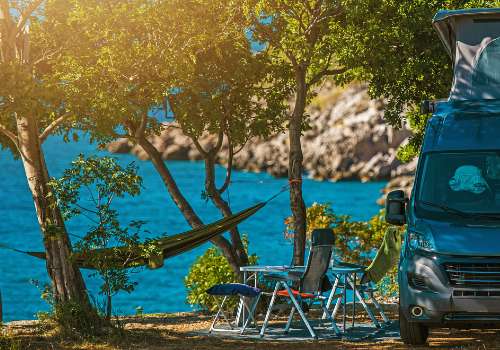
Take time to think about other costs when choosing a long-term campsite.
What are your hobbies? If you love to fish, hike, shop, or craft, you’ll want easy access to lakes, trails, and stores, so you don’t need to spend extra to reach them.
You’ll also need to think about general grocery shopping and medical needs.
Is there a hospital, dentist, or doctor in the area that accepts your insurance plan?
If you own a motorhome without a toad, can you walk or ride your bicycle to get food, or will you have to pay for an Uber?
What Campgrounds Expect From Resident RVers
Not all parts of living in an RV park come down to an actual dollar figure.
You need to consider other costs, including what a campground will expect from their resident guests.
Next up are the top five issues with RV park living and how campground owners expect you to deal with them.
5 Problems With RV Park Living
1. Noise
Noise issues in RV parks go both ways. When you live in a tin box, sound travels freely.
You can be the one causing a clamor that annoys other guests, or those guests can be partying it up every weekend past the quiet time when you want to sleep.
How much noise is too much?
The problem is that different campgrounds have various rules around their “quiet hours,” with little set in stone about the hours in between.
Never rent at a park without an in-depth discussion with the manager about what they expect and how they handle noise complaints.
You may think the park “owes” you some slack for being a full-timer, but management will always try to make the person who pays a higher rate the happiest, and that’s rarely you.
2. Restraints on Campsite Decor
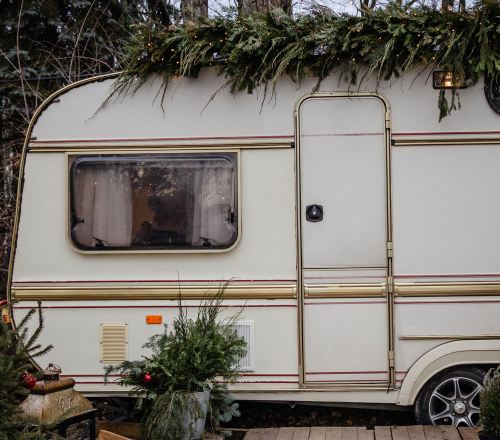
As a full-time RV park resident, you’ll undoubtedly want to make your campsite as homey as possible.
Problems arise when people go overboard and create campsite clutter that looks trashy. It’s very easy to accumulate chairs, grills, plants, decorations, piles of shoes, and plastic storage bins when you aren’t moving your RV every week.
Many campgrounds have strict rules for outdoor decor and items you can place on your campsite. If the restrictions apply to general guests, they also apply to you.
No camping guest wants to RV at a $1,000-a-week campground next to the person with a couch on their patio.
Whatever the campground rules are, follow them and don’t complain. Take a look at your campsite from an outsider’s perspective to help keep outdoor clutter under control.
3. Lack of Outdoor Space
Most RV park campsites aren’t large. Unless you have a small camper, expect to have little outdoor space outside of your patio area.
If you own a vehicle, you’ll most likely take up all your space to park them, which may be annoying.
What often happens with RV resident guests is they slowly infringe upon neighboring campsites.
Many feel free to park their vehicles on the next site because “no one is there” or to set up a canopy that’s several feet onto the next lot.
If you need extra space, consider renting out two campsites instead of being a pain to management and other guests.
4. Inconsistent Utilities and WI-FI
Campgrounds are notorious for shutting off power, water, or Wi-Fi to fix issues like broken water lines or moisture-laden internet boxes.
If you don’t have the temperament to go with the flow when these things happen, you’re better off not choosing to live in an RV park.
Complaining to the owners when your internet goes out is futile. They’ll tell you to have your own Wi-Fi if it means that much to you.
Management also can’t control guests who back over water spigots or power pedestals and need to shut it all down for repairs quickly. They also can’t help foolish campers who use “flushable wipes” and then clog up the park’s sewer line.
Again, expect constant issues along these lines, and don’t complain when it happens because the staff finds it just as stressful as you.
5. Lack of Privacy
You’ll be living in close proximity to others in a campground, so expect less privacy.
Sitting outside your camper enjoying the weather usually means chatting with every guest that walks by or having to keep your conversation low to avoid bothering your neighbors.
Lights on at night with curtains open is a free show for all. Keep this in mind if you don’t want everyone to see you eating dinner or know what you’re watching on your TV, especially movies of the adult variety.
You can’t expect management to tell regular guests to leave you alone, so shut your curtains when necessary and consider installing an RV awning screen to get more privacy for outdoor relaxation.
What Is a Workamper and How Becoming One Reduces Monthly Costs
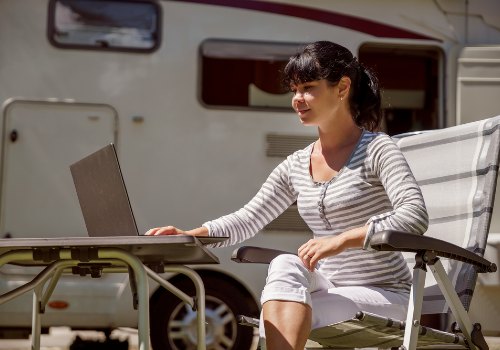
If you’re going to be living in an RV park, you may as well work there, too.
A “workamper” is a person or couple that hires on at an RV park or state and national park campgrounds and lives on the property during their time of employment.
Before I began RVing, I had never heard of the term but found becoming a workamper is the most affordable way to full-time RV.
Want to Connect With a Community of Over 1,078 RV Enthusiasts?
Most workamping contracts are for 4-6 months, but often you can extend the contract for as long as you wish if both you and the RV park management get along.
How Does Workamping Lower Monthly RV Park Living Costs?
If you plan to live long-term in any campground, you should consider becoming a workamper for these reasons:
Campsite Rental
First, you’ll pay little to no rent for your campsite.
Some parks will have you work 12-20 hours per week in exchange for your campsite, which leaves lots of free time to explore the area and the cash available for entertainment.
Other parks have a standard 32-40 hour workweek, and you get paid hourly over those they require for your campsite.
Some RV parks pay for all hours and then charge you a low monthly rent due to the tax implications for “free” campsites becoming more restrictive across all the states.
I’ve been a workamper at many RV campgrounds over the years and find it’s an excellent way to enjoy all the perks of living in a particular location without draining my savings.
The extra income pays for all the entertainment and food I require, and the free or low campsite rent helps even more!
Another hidden perk is that most parks will provide free cabins or campsites for family visits.
Savings on Utilities
Most contracts include the cost of utilities, cable, and park Wi-Fi. This perk means you won’t have the regular bills of non-park-working long-term RV residents, which can run as high as $250 a month.
Freebies
I can’t express how much free stuff you’ll get as a workamper.
Weekend or short-vacation RVers love to bring all the extras for trips but rarely want to pack it up and drag it home and instead offer it to staff.
Uneaten groceries, water toys, grills, toiletries, clothing, towels, beach umbrellas, fishing poles, and camp chairs are common “gifts.”
I often stash away enough TP and canned goods during workamping contracts to last months when I decide to travel again freely.
Reduction of Stress
The cost of your physical and mental health also needs a mention in this section.
Workamping is a very, very low-key job in most instances.
Stints at state and national parks are by far the most relaxing. A busy tourist-location RV campground can get hectic at peak season, but overall, you’ll appreciate the comfortable vibe of working at a campground.
There’s no worry about commuting to work and the toll that takes on your time, vehicle, and wallet. Best of all, 99 percent of the time, you’ll deal with happy campers who brighten your day.
Resources to Locate Workamping Jobs
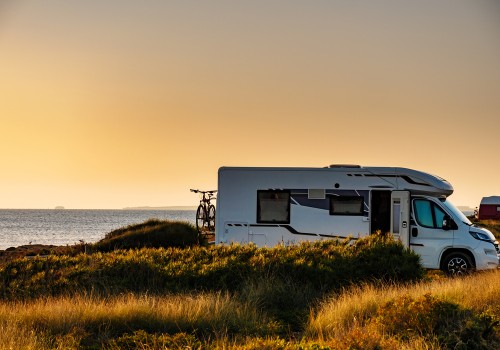
The best way to locate workamping jobs is to join Workamper News or sign up for job positions through the KOA website. Both of these sites list current and future job openings all across the US.
There are many free sites online that list RV workamping positions that can help you get an idea of what’s out there in your vicinity.
You should join a workamper’s online forum and check out this Workamping Job Guide that goes into more detail about taking on this way of RV life.
Be aware that most RV workamping jobs book up six months to a year in advance, so don’t wait to apply if you see any position you like.
TIP: If you see the same campground offering the same jobs month after month, it means they are tough to work for, so people keep quitting, or the pay is terrible. Workampers with experience avoid these, and so should you.
Final Thoughts
Can you live year-round in an RV park? Yes.
Does living in an RV save money? Probably not.
Most people who want to know how much it costs to live in an RV park really love the RV lifestyle and want to experience it every day instead of only a few times a year.
By having the real numbers of the average monthly costs to live in an RV park, you can plan your budget and make your dreams come true!
How Much Does Living in an RV Cost? (Video)
"Man cannot discover new oceans unless he has the courage to lose sight of the shore."
-- Andre Gide

